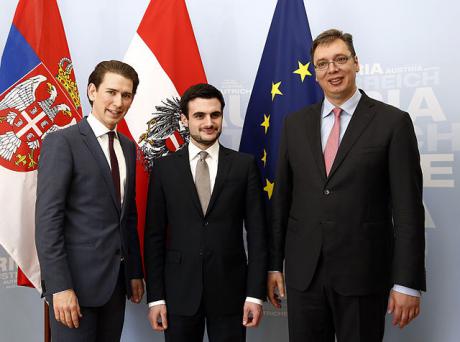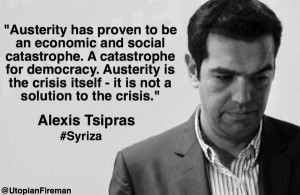By Jay Smyropolus. Published 4-4-2016 by The Free Thought Project

Photo: IMF
WikiLeaks has once again exposed how supranational organizations create artificial crises in an effort to advance the Western corporate-political elites geostrategic goals, as revealed in the transcript of a teleconference, which took place on March 19, 2016, between top International Monetary Fund (IMF) officials.
The striking conversation reveals IMF officials imply that the threat of an imminent financial disaster was necessary to force other stakeholders into accepting the IMF’s “measures” such as cutting Greek pensions and working conditions. However, a June 23 referendum will essentially freeze European decision-making at an extremely critical moment – potentially risking greater political destabilization, but also giving the organization greater leverage. Continue reading


![Billboard for António Costa, leader of the PS. Photo by El-Kelaa-des-Sraghna (Own work) [CC BY-SA 4.0], via Wikimedia Commons](http://occupyworldwrites.org/wp-content/uploads/2015/10/Cartel_campaña_2015_Portugal_-_PS.jpg)

![Alexis Tsipras at the Subversive Festival in Zagreb, 2013. Photo by Robert Crc (Subversive festival media) [FAL], via Wikimedia Commons](http://occupyworldwrites.org/wp-content/uploads/2015/08/Alexis_Tsipras_on_Subversive_Festival.jpg)

![Alexis Tsipras. Photo by Joanna (Flickr: Επίσκεψη Αλέξη Τσίπρα στην Κομοτηνή) [CC BY 2.0], via Wikimedia Commons](http://occupyworldwrites.org/wp-content/uploads/2015/06/Επίσκεψη_Αλέξη_Τσίπρα_στην_Κομοτηνή2.jpg)
